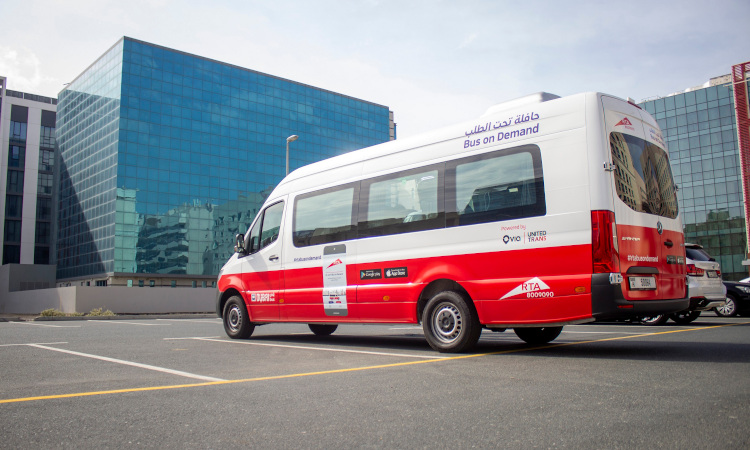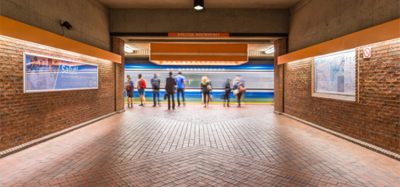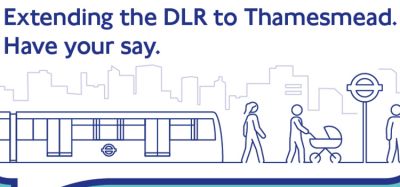Dubai RTA launches new Bus-On-Demand route
- Like
- Digg
- Del
- Tumblr
- VKontakte
- Buffer
- Love This
- Odnoklassniki
- Meneame
- Blogger
- Amazon
- Yahoo Mail
- Gmail
- AOL
- Newsvine
- HackerNews
- Evernote
- MySpace
- Mail.ru
- Viadeo
- Line
- Comments
- Yummly
- SMS
- Viber
- Telegram
- Subscribe
- Skype
- Facebook Messenger
- Kakao
- LiveJournal
- Yammer
- Edgar
- Fintel
- Mix
- Instapaper
- Copy Link
Posted: 10 February 2022 | Intelligent Transport | No comments yet
Following growing rider demand, Dubai’s Roads and Transport Authority has launched a new route at Al Nahda for its Bus-On-Demand service, resulting in a range of operational, environmental and passenger benefits.


Credit: Roads and Transport Authority
Dubai’s Roads and Transport Authority (RTA) has announced that it has launched a new route for its Bus-on-Demand service at Al Nahda in response to the increasing demand from bus riders and following extensive field studies.
The service will run on weekdays (Monday to Thursday) from 05:00 to 00:00. On Fridays and Saturdays, the service will run from 05:00 to 01:00 (of the following day) and, on Sundays, the service will operate from 10:00 to 01:00 (of the following day).
The service is available through the Dubai Bus-on-Demand smart app, and 10-seater buses are deployed to operate on flexible routes and timings. Drivers of these buses can communicate with the service requesters through the app to identify the nearest points to them.
Other benefits of the service relate to clients, operation and the environment. These buses will reduce the walking distance and the waiting time of clients and improve their experience of using premium buses. From an operational perspective, the buses are smaller in size, consume less fuel and have a smart scheduling system that reduces the number of wasted kilometres. In regards to the environment, the service cuts carbon emissions and limits the journeys of private vehicles in the serviced areas.
Currently, there are 13 minibuses deployed to run the service in certain areas of Dubai, including Al Barsha, Dubai Silicon Oasis and the Academic City. These buses are convenient and fit the needs of the public, as they are accessible and can have flexible routes to suit certain categories. In line with the service’s strategy, the buses will serve areas with low demand for public transport and reduce the operational costs due to the fixed service schedules.
Related topics
Accessibility, Mobility Services, On-Demand Transport, Passenger Experience, Public Transport, Sustainable Urban Transport
Related modes
Bus & Coach
Related cities
Dubai
Related countries
United Arab Emirates
Related organisations
Dubai’s Roads and Transport Authority (RTA)








